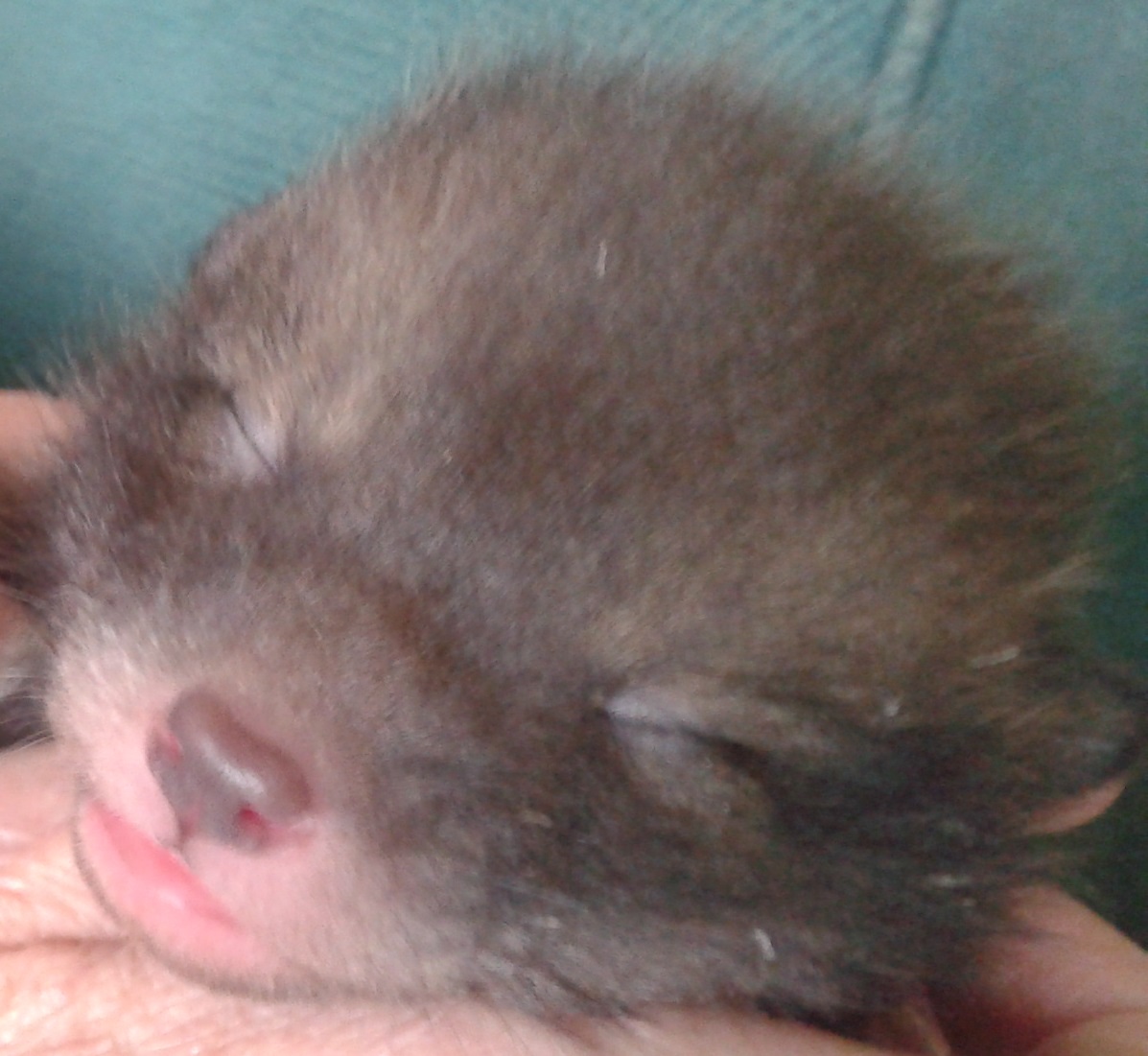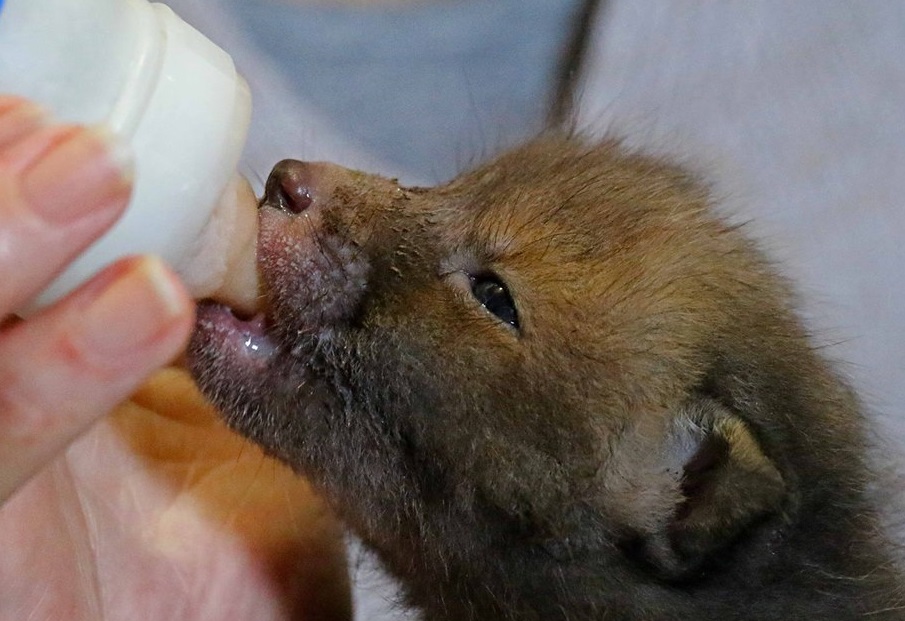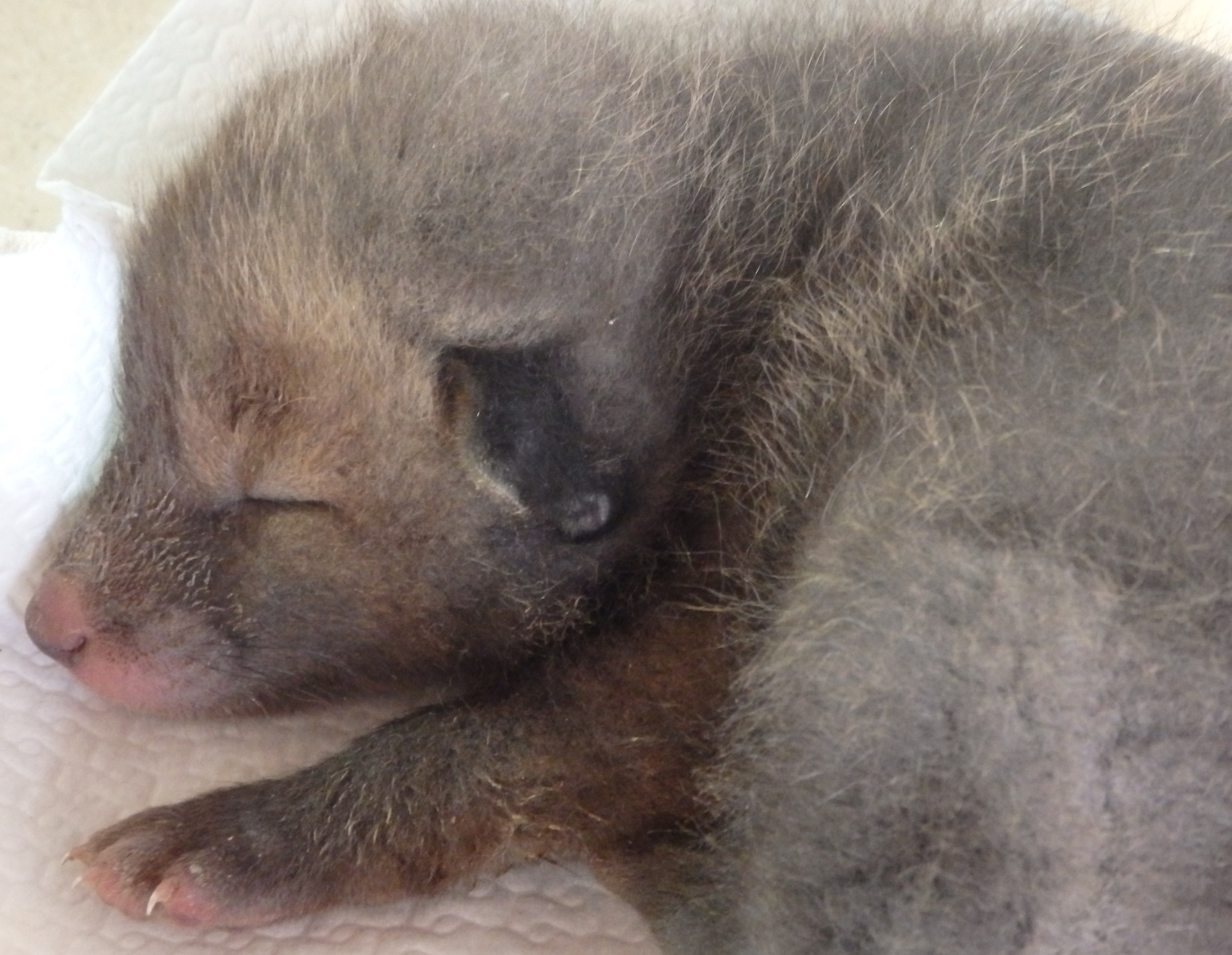Finding a fox cub, what to do
Fox cubs are usually born from early March until late April. They are born blind, deaf, and have short blackish fur with a white tip at the end of their tails. At this age the cubs are totally dependent on their mother's milk, and look very much like newborn puppies. As a consequence, they are often orphaned when picked up by mistake. The white tip to the tail is a very clear indication that you've found a fox cub and NOT a newborn puppy.


Once the cub's eyes open, at around 10 days, they start to explore their den, and may even venture to the entrance. By the time they are 4 weeks old the cubs are beginning to explore the big outside world, although they continue to remain close to the entrance of their 'earth'. Once the cubs are 8 weeks old they are spending more and more time above ground playing and chasing each other. It's at this playful young age that most of the complaints about urban foxes occur, as householders watch their gardens or allotments being flattened and destroyed. By the age of 3 months the cubs are fully weaned and will be starting to follow their parents around their territory. This is the age when, very sadly, many cubs become injured, or killed, on our busy roads. At the age of 4 months the cubs are hunting and finding food for themselves, but still remain in the parental territory. By September the cubs look virtually identical to their parents, with their wonderful thick reddish coats, and it's now in early Autumn that the cubs start to disperse from the family group in search of territories of their own.
Please don't immediately assume that the cub you've just found has been abandoned. The vixen could well have been disturbed while moving her cubs. If the cub is clearly uninjured and showing no signs of distress PLEASE DON'T touch the baby, move well away from the spot and watch from a distance, or return an hour later to check if the cub is still there. If the uninjured cub is on a road, or somewhere very exposed and dangerous, you can move it to a safe and sheltered place close by. Once again return an hour later to check on the cub, if it's still in the same spot and beginning to show signs of distress, then you will probably need to rescue the baby. However, if the cub you've found is injured or clearly in distress it will need to be rescued immediately. It is always a good idea to check the surrounding area just in case there are further orphaned cubs. Very often in the early Spring people dismantle their old garden sheds only to find when they lift the floor there's a litter of very young fox cubs underneath. Once again, the advice is DON'T TOUCH the cubs!! If possible return the floor so that the cubs are protected and leave the area. Very often the vixen will return and move her cubs, but this may not be until the quiet of the night.

Therefore, if the cubs are still there the following morning you will need to ring a wildlife rescue for advice. Most vixens are excellent mothers and wouldn't normally abandon their babies. Occasionally a lactating Vixen is found dead, by searching the surrounding area an active earth may be found. If the cubs are still too young to take solid food, they may eventually come above ground in a desperate search for Mum, and can then be rescued. However, if the cubs are older, dry puppy biscuits, road kills, and water can be left twice daily by the entrance to the earth. Supporting the cubs in the wild is a long-term commitment and will need to be continued until the cubs are totally self sufficient at around 5 months.
Please be aware that the above information is purely a guide. Because no one rescue is ever the same; we would always strongly recommend you seek appropriate help and advice from a local wildlife hospital or rescue. If a fox cub has been mistakenly picked up it is VERY important that a note of the exact location is made, so that the cub can be returned as soon as possible.